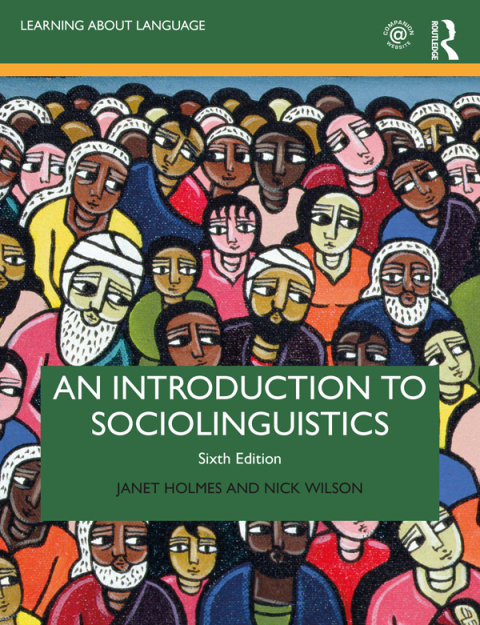Description
Efnisyfirlit
- Cover
- Half-Title Page
- Title Page
- Copyright Page
- Table of Contents
- Preface
- Chapter 1 Political Psychology: Introduction and Overview
- Why Study Political Psychology?
- What is Political Psychology?
- The Political Being
- Conclusion
- Key Terms
- Suggestions for Further Reading
- Chapter 2 Personality and Politics
- When Do Personalities Matter in Politics?
- Theories and Approaches to Studying Personality
- Psychoanalytic Approaches
- Traits, Motives, and Individual Differences
- Trait Theories
- Motive Theories
- Genetic Theories
- Some Frameworks from Political Psychology
- The Authoritarian Personality
- Leader Analysis Frameworks
- Trait-Based Studies
- Presidential Character
- Leaders’ Characteristics: Motives and Traits
- Operational Code
- Conclusion
- Key Terms
- Suggestions for Further Reading
- Notes
- Chapter 3 Cognition, Social Identity, Emotions, and Attitudes in Political Psychology
- Information Processing
- Categorization
- Social Identity
- Affect and Emotion
- The Diabolical Enemy
- The Barbarian
- The Imperial Image
- The Rogue Image
- The Degenerate Image
- The Colonial Image
- Attitudes
- Conclusion
- Key Terms
- Suggestions for Further Reading
- Chapter 4 The Political Psychology of Groups
- The Nature of Groups
- Definition of a Group
- Types of Groups
- Group Composition
- Group Structure
- Group Formation
- Functional Perspective
- Interpersonal Attraction Perspective
- Group Development
- Influence in Groups
- Situational Conformity
- Power
- Reactions to the Use of Power
- Minority Influence
- Group Performance
- Social Facilitation and Inhibition
- Productivity Losses
- Improving Productivity
- Group Decision-Making
- The Decision-Making Process
- Three-Stage Model of Group Decision-Making
- Social-Decision Schemes
- Emotions and Decisions
- Groups and Political Decision-Making Units
- Individual vs. Group Decision-Making
- Groupthink
- New Group Syndrome
- Bureaucratic Politics
- Manipulation
- Group Polarization
- Escalation of Commitment
- Improving Group Decisions
- Conflict in Groups
- Types of Conflict: Social Dilemmas
- Causes of Conflict
- Coalitions
- Conclusion
- Key Terms
- Suggestions for Further Reading
- Chapter 5 The Study of Political Leaders
- An Illustration of Application of Political Psychology Approaches to Leaders
- The Example of George W. Bush
- George W. Bush as a Delegator-Maverick: A Case Study
- The Importance of Loyalty in the Bush Inner Circle
- The Need for Control and Involvement in the Policy Process
- Bush’s Sensitivity to Context/Use of Information
- Bush’s Interpersonal Style
- The Case of Hurricane Katrina (2005)
- The Case of Donald J. Trump
- Conclusion
- Key Terms
- Suggestions for Further Reading
- Notes
- Chapter 6 The Political Psychology of Mass Politics: How Do People Decide Who to Vote For?
- Beliefs, Values, Ideology, Attitudes, and Schemas
- Political Sophistication and Voting in America
- The Michigan School
- The Maximalists
- Knowledge Structures
- Information Processing and Voting
- Emotion and Voting
- The Presidential Election of 2008
- Issues and Emotions
- The 2012 Election
- The 2016 election of Donald Trump
- Candidates
- The Economy
- Terrorism
- Immigration
- Trump’s “Drain the Swamp” Theme
- Foreign Policy
- Who Voted for Trump and Why
- Political Polarization
- Donald Trump and Populism in America
- Political Socialization
- Political Tolerance
- Voting Behavior in Britain
- Voting Behavior in Other Countries
- Conclusion
- Key Terms
- Suggestions for Further Reading
- Note
- Chapter 7 The Political Psychology of the Media in Politics
- Agenda-Setting
- Priming
- Framing
- Attitude Change and Persuasion
- Persuasion and Political Campaigns
- Social Media
- Internet Misinformation and Fake News
- Conclusion
- Key Terms
- Suggestions for Further Reading
- Chapter 8 The Political Psychology of Race
- Explaining Racism and Ethnocentrism
- The Political Psychology of Race
- Race in the United States, Europe, Brazil, and South Africa
- Race in the United States
- White Identity and the Myth of the Post-Racial Society
- The Black American Perspective on Race and Politics
- The Hispanic Perspective on Race and Politics
- Asian and Pacific Islander American Perspective on Race and Politics
- Radical White Racists and the Racial Divide
- Leaders, Members, and Recruitment
- Race in Brazil
- South Africa
- Conclusion
- Key Terms
- Suggestions for Further Reading
- Notes
- Chapter 9 From Ethnic Conflict to Genocide
- Multiethnic or Multisectarian States
- Explanations of Conflict
- The Perpetrators of Violence: Political Extremists
- Case Illustrations of Ethnic Conflict
- Ethnic Clashes in Nigeria
- Ethnic Cleansing in Bosnia
- The Maya of Guatemala
- Ethnicity and Sectarianism in Iraq
- Syria
- The Rohingya of Myanmar
- The Perpetrators of Genocide
- The Holocaust
- Rwanda
- Darfur
- Bystanders and Altruists
- Conclusion
- Key Terms
- Suggestions for Further Reading
- Note
- Chapter 10 The Political Psychology of Nationalism
- An Overview of Nationalism
- Definition and Patterns of Behavior
- Nationalism in Non-nation-states
- Causes of Nationalistic Behavior
- Case Illustrations of Nationalism
- Nationalism and Perceived Threats to National Values: Western Europe and Immigrants
- Nationalism and the Desire for Unity and Independence
- Northern Ireland
- Historical Background
- The Political Psychology of the Conflict
- Yugoslavia
- Historical Background
- The Political Psychology of the Conflict
- Kosovo and Albanian Independence
- Historical Background
- The Political Psychology of the Conflict
- Cyprus
- Historical Background
- The Political Psychology of the Conflict
- Chechnya
- Historical Background
- The Political Psychology of the Conflict
- Turkey and the Kurdish Revolt
- Historical Background
- The Political Psychology of the Conflict
- German Unification
- Ukrainian or Russian? Who are We?
- The Political Psychology of the Conflict
- Nationalism and Foreign Policy1
- World War II
- The United States, Mexico, and the War on Drugs
- Donald Trump and the War on Mexico
- Conclusion
- Key Terms
- Suggestions for Further Reading
- Note
- Chapter 11 The Political Psychology of Social Movements
- Background: Characteristics of Social Movements
- The Political Psychology of Social Movements
- Mobilization
- Leaders
- The Civil Rights Movement in America
- The Tea Party
- Occupy Wall Street
- The Me Too Movement
- Black Lives Matter
- From the Tea Party to White Nationalism and the Alt-Right
- The Arab Spring
- Tunisia
- Egypt
- Libya
- Yemen
- Conclusion
- Key Terms
- Suggestions for Further Reading
- Chapter 12 The Political Psychology of Terrorism
- A World of Terrorism
- Defining Terrorism
- Terrorist Groups
- Why Do Groups Turn to Terrorism?
- Psychopathological Views
- Personality Traits and Motivation
- Suicide Bombers
- Demographic Profiling
- Individuals and Groups
- Recruitment and Radicalization
- Indoctrination
- Propaganda Messages
- Dehumanization and Scapegoating
- Conformity
- Group Conflict
- Roles
- Social Control
- State Terror and Cultures of Fear
- The Dirty War in Argentina
- Paramilitaries/Death Squads
- Conclusion
- Key Terms
- Suggestions for Further Reading
- Chapter 13 The Political Psychology of International Security and Conflict
- Why Violence and War?
- The Security Dilemma
- The Psychology of Deterrence
- The Effects of Problem Representation or “Framing” Upon Perception and Decision Making in the Security Context
- Accountability
- Group Dynamics and Malfunctions of Process
- Applications of Political Psychology to Modern Security Studies: Deterrence as a Psychological Relationship and the Credibility of Threats
- Conclusion
- Key Terms
- Suggestions for Further Reading
- Notes
- Chapter 14 Conflict Resolution and Reconciliation
- War Tribunals
- Dialogue and Truth and Reconciliation Commissions
- Integration Strategies
- Shared Sovereignty Strategies
- Utilitarian Integration Strategies
- Intractable Conflicts
- Conclusion
- Key Terms
- Suggestions for Further Reading
- References
- Glossary
- Index






